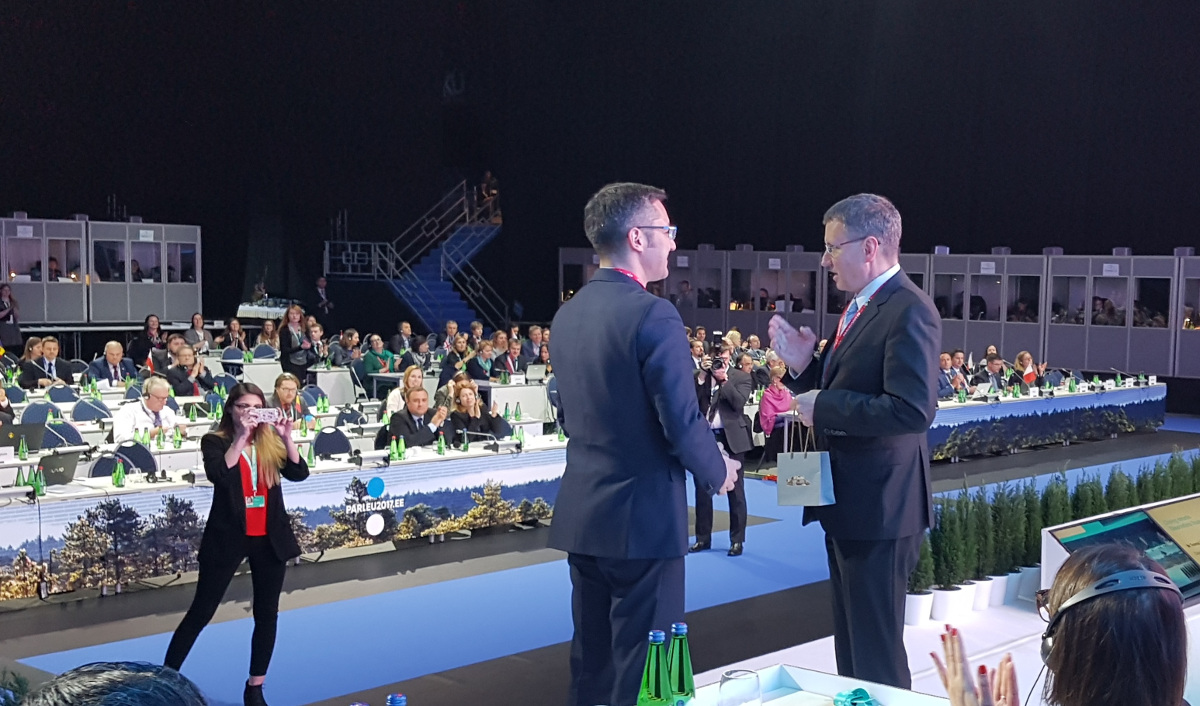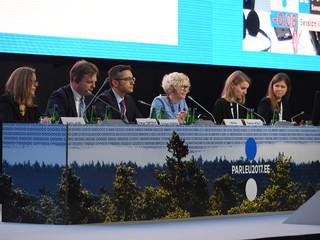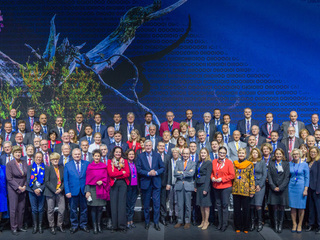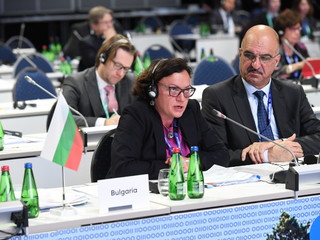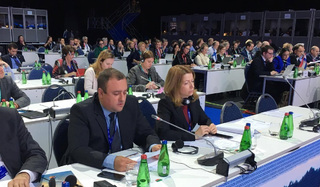At the 58th COSAC plenary (Conference of Parliamentary Committees for Union Affairs of Parliaments of the European Union), Chair of the Committee of European Affairs and Oversight of the European Funds Kristian Vigenin was invited to share experience and best practices from the work of the Committee of European Affairs and Oversight of the European Funds on promoting the topics and issues of the European agenda among citizens.
In his speech the Chair of the Committee mentioned that the national parliaments actively contributed to the better functioning of the European Union and shared the opinion that they had a key role to ensure legitimacy and accountability of the Union’s actions, more democracy and transparency. It is essential that the national parliaments exercise control over governments as regards their involvement in the decision-making process on the EU level, said Kristian Vigenin.
“Faced with external and internal challenges and crises, the EU should demonstrate strength and resolution to preserve the unity and meet the expectations of its citizens in areas like security, economic development and overcoming social inequalities”, said the Chair of the Committee on European Affairs and Oversight of the European Funds.
In this relation, Kristian Vigenin presented to his colleagues some of the best practices of the Committee for establishing a sustainable dialogue and cooperation with the civil society. He shared that to this end, a Public Council had been set up with the Committee consisting of 30 permanent representatives of the academia, trade unions, employers’ and students’ organisations, institutions and foundations working on EU issues. The Committee’s activity in the social media is also well received: the Committee’s pages in Facebook and Twitter regularly provide information about its work and an opportunity for citizens to ask questions and give recommendations, and receive a timely answer.
Committee’s Deputy Chair Ivelina Vasileva shared her views on the topics about the future of the EU. She mentioned that the Union should unite around a common vision for its future which would include deepening and expanding the integration processes, while at the same time the Cohesion policy should continue to be one of the leading instruments for achieving economic and social convergence. Ivelina Vasileva emphasised that the EU enlargement policy in the West Balkan regions was a guarantee for stability, economic and social development not only for South-eastern Europe but also for the whole continent.
On the topic of building a sustainable union of security, Ivan Ivanov, member of the Committee, said that information exchange was crucial for the successful countering of the terrorist threat and the challenges related to heavy and organised crime. Ivan Ivanov explained that the establishment of a new unit for information exchange was a priority topic for the Bulgarian Presidency of the Council of the EU. He expressed his hope that the legislative package for a reform of the Schengen information system would help overcome the political barriers for Bulgaria and Romania in their accession to the Schengen space. “This will enhance security on a European level and create conditions for more trust between individual member states”, said Ivan Ivanov. He also explained that Bulgaria’s accession to Schengen was of key importance for the security of the Union, Bulgaria being its external border.
The 58th plenary COSAC was closed as Estonia symbolically handed over the baton to Bulgaria, which will take over the presidency of the Council of the EU as of 1 January 2018. Kristian Vigenin thanked his Estonian colleague Thomas Vitsut for the good work and constructive cooperation saying that he hoped it would continue in the next six months.
The Chair of the Committee on European Affairs and Oversight of the Europea Funds addressed the participants expressing his hopes to meet again at the COSAC meetings scheduled in Sofia: a Chairs Meeting on 21-22 January and a plenary meeting on 17-19 June.
